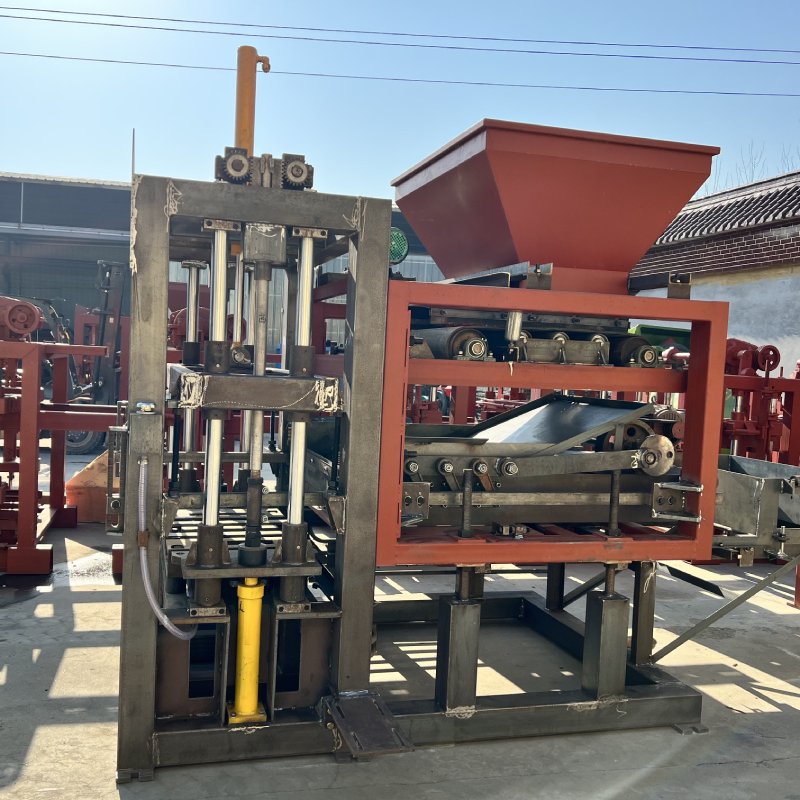
Image source:Aiwei block machine
Introduction
South Africa, known for its diverse landscapes, rich cultural heritage, and economic potential, is experiencing a rapid transformation in its urban and infrastructural development. At the heart of this transformation are paver block machines, which play a pivotal role in modernizing the nation’s construction practices. This article delves into the significance, advancements, challenges, and future prospects of paver block machines in South Africa.
The Significance of Paver Blocks in South Africa
Paver blocks, also referred to as concrete or brick pavers, have become indispensable in South Africa’s construction sector. Their significance can be observed in several key areas:
1. Durability and Resilience
South Africa’s diverse climate, from arid regions to coastal areas, demands construction materials that can withstand harsh conditions. Paver blocks are renowned for their durability and ability to endure extreme weather, making them ideal for South African infrastructure.
2. Aesthetic Appeal
Paver blocks offer a wide range of colors, shapes, and textures, allowing architects and builders to create visually appealing surfaces. They enhance the aesthetics of public spaces, residential areas, and commercial developments.
3. Sustainable Urban Development
South Africa, like many countries, is grappling with the challenges of urbanization. Paver blocks, particularly permeable varieties, aid in sustainable urban development by allowing rainwater to infiltrate the ground, reducing runoff and the risk of flooding.
4. Versatility
Paver blocks find applications in various construction projects, including driveways, walkways, pavements, and roadways. Their versatility makes them suitable for both residential and industrial settings.
Advancements in Paver Block Machine Technology
The adoption of advanced technology in South Africa’s paver block manufacturing sector has revolutionized the industry. Some notable advancements include:
1. Automation
The integration of automation in paver block machines has significantly improved production efficiency. Automated machines can produce a higher volume of pavers with consistent quality.
2. Eco-Friendly Practices
In response to environmental concerns, South African manufacturers are increasingly incorporating eco-friendly practices. This includes the use of recycled aggregates and the development of permeable paver blocks to support sustainable construction.
3. Enhanced Customization
Modern paver block machines offer greater design flexibility. This allows for intricate patterns and designs, catering to the evolving aesthetic preferences of South African consumers.
4. Quality Assurance
Advanced quality control measures, including real-time monitoring and testing, ensure that paver blocks meet stringent standards, contributing to safer and more reliable infrastructure.
Challenges and Opportunities
The journey of paver block machines in South Africa is not without its challenges and opportunities:
Challenges
- Skills Development: Ensuring a skilled workforce to operate and maintain advanced machines remains a challenge. Investment in training and education is crucial.
- Market Competition: The growing demand for paver blocks has led to increased market competition. Manufacturers must innovate and differentiate their products to stay competitive.
- Environmental Regulations: Compliance with environmental regulations is essential. Manufacturers must navigate evolving sustainability standards and practices.
Opportunities
- Export Potential: High-quality South African paver blocks have export potential to neighboring countries and international markets.
- Infrastructure Development: South Africa’s ongoing infrastructure development projects present a substantial market for paver block manufacturers.
- Research and Development: Investment in research and development can lead to new, sustainable materials and innovative paver block designs.
Case Studies in South African Paver Block Applications
Several noteworthy projects in South Africa highlight the extensive use of paver blocks:
1. Cape Town’s Sustainable Urban Spaces
Cape Town has embraced sustainable urban development by incorporating permeable paver blocks in public spaces. These blocks mitigate flooding, support groundwater recharge, and enhance the city’s green infrastructure.
2. Johannesburg’s Roadway Rehabilitation
Johannesburg has utilized paver blocks extensively in its roadway rehabilitation projects. The durability and aesthetic appeal of these blocks contribute to safer and more visually pleasing streets.
3. Durban’s Coastal Promenade
Durban’s coastal promenade features creatively designed paver block pathways. These not only provide a scenic walking experience but also enhance the city’s tourism appeal.
Conclusion
Paver block machines are driving modernization and sustainable development in South Africa’s construction industry. Their versatility, durability, and adaptability to evolving construction practices make them a linchpin in the country’s infrastructure development. As South Africa continues to evolve, paver block machines will play a pivotal role in shaping the nation’s urban and architectural landscape.
